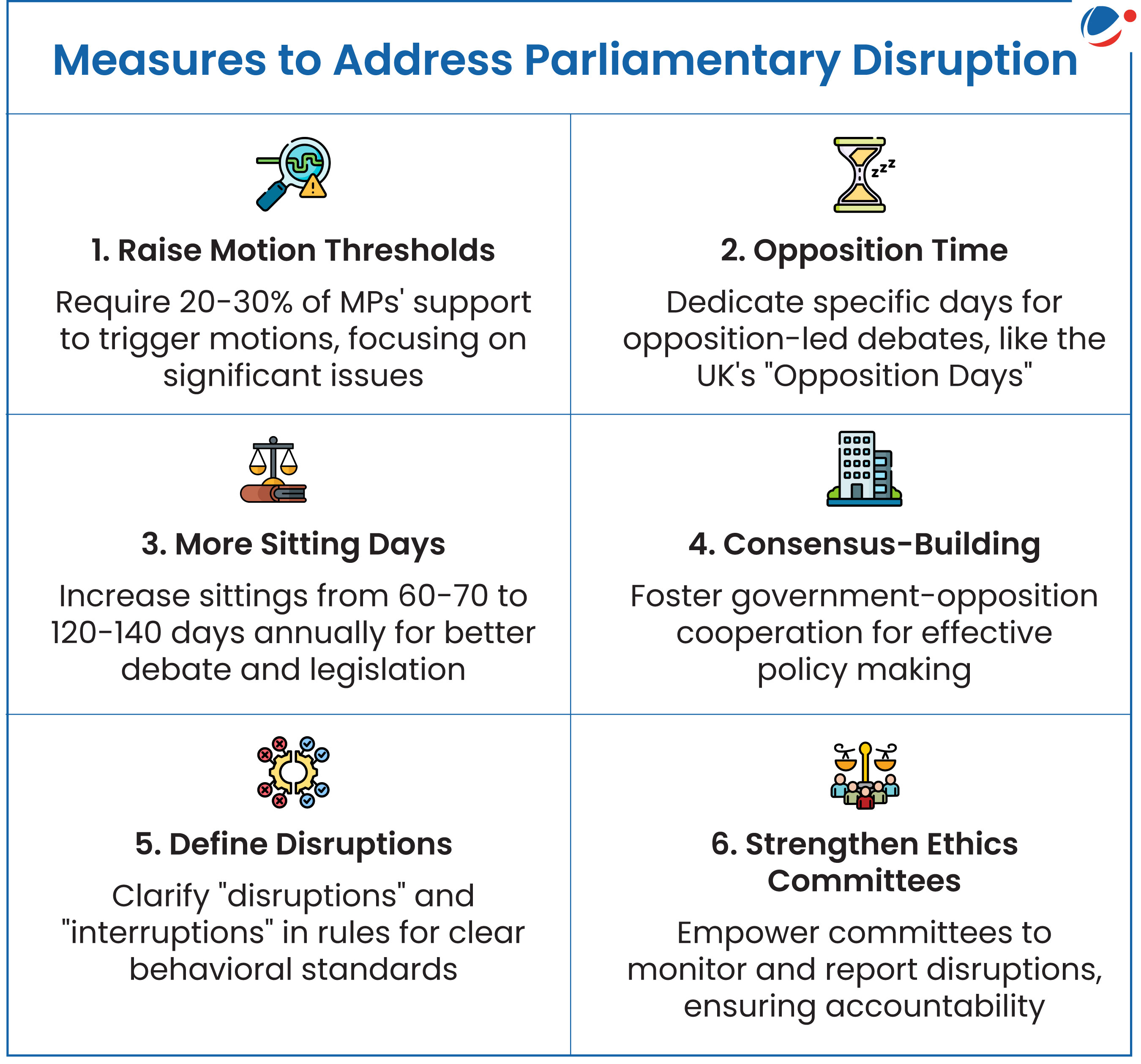Parliament's productivity has declined sharply due to frequent disruptions, with the 17th Lok Sabha functioning at 88% and Rajya Sabha at 73% of the scheduled time.
- In the 18th Lok Sabha (Winter 2024), productivity dropped further to 54.5% and 40%, respectively, of the scheduled time

Reasons for Parliamentary Disruption:
- Substantive Reasons:
- Disruptions arise from controversial national or regional issues dominating public attention. E.g., Hindenburg controversy.
- Opposition Grandstanding: Opposition disrupts proceedings to delay or block proposals, shifting focus from debate to publicity.
- Anti-defection law (10th Schedule, introduced by the 52nd Constitutional Amendment) forces MPs to follow party whips, restricting debate and pressuring them to join disruptions.
- Structural Reasons:
- Increasing number of political parties reduce debate time, causing disruptions over unlisted issues.
- Parliamentary framework lacks defined time limits for various business, like Question Hour, leading to delays
Implications of Parliamentary Disruption
- Disruptions reduce debate time, undermining Parliament's ability to hold the government accountable and pass laws, resulting in hasty decisions.
- Continuous disruptions lower public trust in Parliament, as MPs focus on blocking proceedings instead of solving key issues.
- Each minute of Parliament costs ₹2.5 lakh. The 2021 logjam alone cost taxpayers ₹133 crore.




